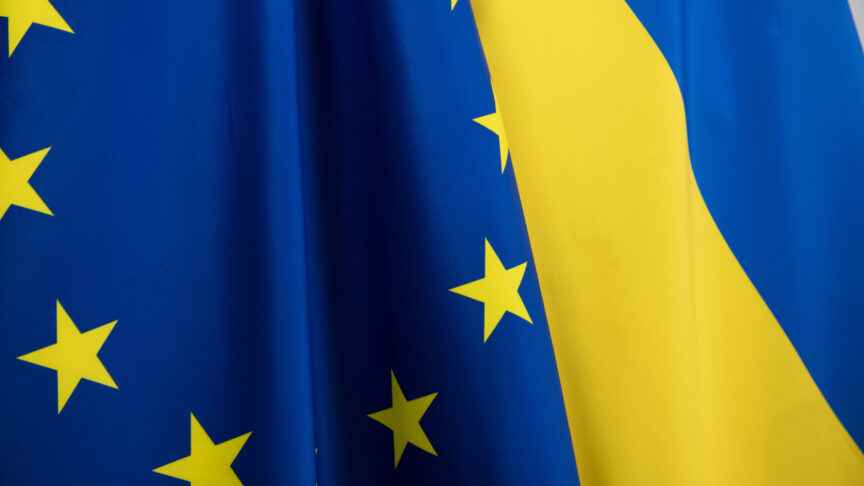First principles: Europe’s founding narrative and the war on Ukraine
Peace, security, and prosperity are at the centre of the European project’s founding narrative. Putin has just reminded us that this narrative is more relevant than ever.
In recent years, it has become fashionable for politicians and public intellectuals to wonder about the future of the European project. Its founding narrative of peace and solidarity, they argue, is no longer relevant and is no longer understood by young people. But is this really the case? What is wrong with the foundational story of the European project?
Europe is a continent of thinkers, inventors, and lovers, but also of warriors and demagogues. We have great architecture and regional cuisines, but we have also been responsible for some of the most terrible wars in world history. Then came Jean Monnet and Robert Schuman with their ideas about a shared European economy, the most creative political project of the twentieth century. Just ten years after the second world war, the winners and losers voluntarily came together to share sovereignty in the production of coal, steel, and nuclear energy, thereby Europeanising the hardware of war. They hoped to create sustainable peace, security, and prosperity in Europe. This was also a response to the challenge from the Soviet Union and the Warsaw Pact – which, nowadays, is rarely mentioned in the story of the European project.
The project has evolved over six decades with minor and major crises, but always with a tendency towards integration. Along the way, the European Union has taken aboard former dictatorships and assisted them on their way to democracy and prosperity. Eastward enlargement ended the unnatural division of Europe. Europeans should be proud of this huge civilisational achievement.
Russian President Vladimir Putin’s annexation of Crimea and prosecution of an all-out war on Ukraine is reminiscent of the power politics of the 1930s. War in Europe is no longer simply a distant memory. Peace and security were important motives for eastern European countries to join the EU. Now, they feel vindicated. Putin has reminded us all that our European narrative is as relevant today as it was almost 70 years ago. We must pursue it as seriously and responsibly as the founding fathers of the European project did.
But how does one apply this narrative to the current reality?
Firstly, Europe’s most urgent task is to maintain peace and security across the continent, including at its eastern edge. We have learned from our history where it leads when states try to redraw borders through force and others let this happen. The EU must now apply the lessons of history to the Russia-Ukraine conflict by standing in solidarity with its eastern members and neighbours economically and politically, and by providing them with humanitarian support.
The EU needs to focus on the development of sustainable energy and climate security, and to intensify Europe’s renewable energy transition
Secondly, Europe’s image as a desirable model of success will also depend to a large extent on its economic and social stability. A central element of a long-term prosperity agenda will be a sustainable energy policy. The EU needs to focus on the development of sustainable energy and climate security, and to intensify Europe’s renewable energy transition. Renewable energy is crucial to free Europe from dependence on Russian gas and oil. To be sure, Putin’s war on Ukraine is partly financed by petro-euros.
Thirdly, it makes no sense for the 27 EU member states to each have its own ill-equipped army when they have committed to eternal friendship. Europe needs a fully functioning army to defend itself against outside aggression. They would even save money in the process of organising this, because 27 incomplete armies are still more expensive than one efficient one. And a European army is also an identity-building project – like the Erasmus programme, but not only for students. Or do we secretly think that we may need to use national armies against one another? In this case, we should begin to abolish national armies and build a European one as soon as possible.
Europe’s founding narrative is as relevant as ever. For many, this has become much clearer in the past week. Instead of looking for the future of Europe at conferences and roundtable discussions, we should return to this narrative, draw the lessons from it, and adapt it to today’s challenges.
Europe does not need to search for a new narrative: it is right here, in front of our eyes.
This commentary is an updated version of an article written in February 2014 following Putin’s invasion of Crimea.
André Wilkens is the director of the European Cultural Foundation, based in Amsterdam and a founding member of ECFR.
The European Council on Foreign Relations does not take collective positions. ECFR publications only represent the views of their individual authors.



